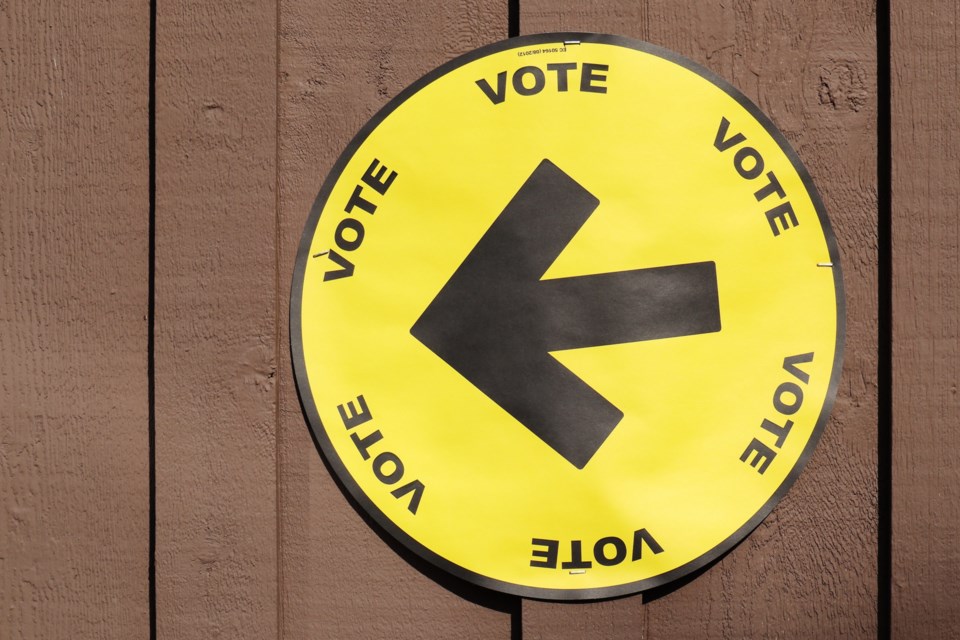Giving permanent residents the right to vote has less to do with democratic rights of new immigrants and more to do with self-serving politicians looking to win the so-called “immigrant” vote.
Permanent residents are valued members of society, regardless of whether or not they have the right to vote. To argue otherwise, as the non-profit Fresh Voices does in its #LostVote YVR campaign, is a straw man argument.
“Without a vote, new residents can feel disengaged from our communities,” says its website.
“Excluding them suggests that their voice is considered less valuable, and represents a major loss for a city that celebrates the benefits of inclusion, diversity, and multiculturalism every day,” says the Vancouver-based organization.
“We believe the responsibilities of permanent residency should count for something.”
Fresh Voices, which is led by immigrant and refugee youth, could be forgiven for its naiveté if not for the alarming support its #LostVote campaign is receiving.
Vancouver City Council passed a motion in 2018 allowing permanent residents to vote in municipal elections, pending provincial approval. This was followed by the Union of BC Municipalities, who endorsed a similar motion last fall that would advocate for updated provincial legislation allowing permanent residents to vote in local elections.
Now the British Columbia Civil Liberties Association has jumped on the bandwagon and says it is working with the #LostVotes campaign to get a meeting with Municipal Affairs Minister Selina Robinson, who so far has been lukewarm to the idea.
At least another 10 municipalities across Canada are working on similar initiatives.
Politicians looking for re-election are wrongly citing this as the answer to low voter turnout. Moreover, they are perpetuating the myth of the so-called “immigrant vote,” which doesn’t exist because people simply do not vote in blocks.
The debate should be about removing barriers to citizenship, rather than diluting its value and removing all incentive for people to become full-fledged Canadians.
Permanent residents already have significant rights and privileges, the biggest being it’s the only path to citizenship. Even Prince Harry and Meghan want to be temporary residents of Canada and will need the help of a good immigration lawyer to apply and qualify for permanent residency.
Permanent residents get the same social benefits as other Canadians, including our much-coveted health-care coverage. They can live, work or study anywhere in Canada. They are protected by the law, and the Charter of Rights and Freedoms. What they can’t do is vote, run for office, or accept certain jobs that require high-level security clearance – that’s pretty much it. These jobs are the exception and don’t even preclude working for the Prime Minister’s Office as a chief speechwriter.
So, to say that “the responsibilities of permanent residency should count for something,” is hogwash; it already counts for ever so much, even without the right to vote.
As for the so-called tyranny of taxation without representation, this doesn’t apply. Permanent residents are represented, just as much as someone who votes, or chooses not to. Like any other resident of Canada, they can turn for help to their local MP, MLA or municipal councilor, have their concerns heard and dealt with accordingly. Many do in fact seek and receive help over their immigration issues.
The real concern are the barriers to citizenship, which in recent years have become so great, fewer and fewer people are becoming citizens.
The Trudeau government has already promised to remove the fees associated with applying for citizenship; the Prime Minister’s December mandate letter tasked the Minister of Immigration to make that happen soon.
The language test is another barrier, and one that I personally believe should be relaxed. You don’t have to be fluent in English or French to be a great Canadian. (If you ever met either of my grandmothers, you would agree.) New immigrants, especially elderly members of a family with limited formal education, should never be forced to learn a second language.
Then there is the backlog and red tape that has grown over the years, partly because of federal job cuts under the Harper government. This has resulted in longer waits and processing time. So, hire more immigration officers and process these applications in a reasonable time frame.
Canada’s multicultural society is a success precisely because we value and promote citizenship as a primary way to integrate newcomers to our country. We recognize all citizens as equal. The law doesn’t discriminate between naturalized citizens and Canadian-born citizens, nor should it.
Citizenship is a privilege that is earned, over time, in a process that actually benefits immigrants as much as the country, because it ensures they are ready to make the not-so insignificant commitment of becoming a Canadian.
Citizenship should be promoted as the ultimate goal of permanent residency, rather than diluting its value by extending the right to vote.
Paula Arab is a Vancouver-based writer and media communications strategist. She can be reached at [email protected].
SWIM ON:
- Back in August 2019, Paula Arab wrote about Early Music Vancouver's successful Bach Festival, which managed to almost quintuple its audience in just four years.
- Speaking of permanent residents - of another country - Maclean Kay looked at the case of expat Canadians voting in Canadian elections.
- In September, Jordan Bateman lamented the stationary state of the Massey Tunnel replacement project - and of traffic stuck in it.



